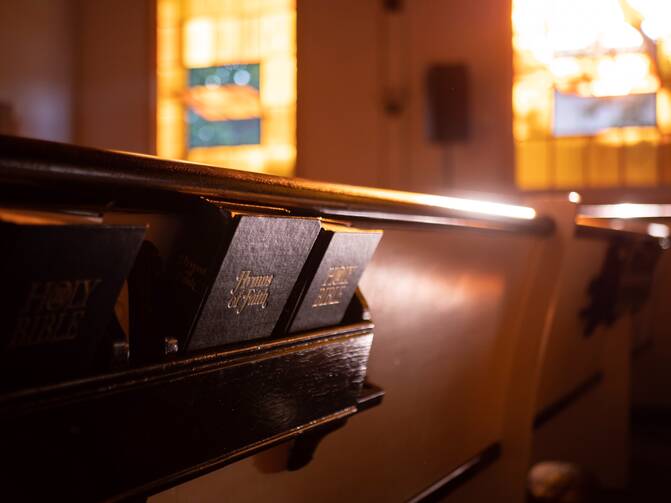A Reflection for Friday of the Fifteenth Week in Ordinary Time
I say to you, something greater than the temple is here. (Mt 12:6)
Rules are essential to civilization.
Rules are made to be broken.
Which statement is true?
Perhaps both. I suppose it depends on the rule.
A confession: If I am sitting at a ridiculously long red light at two in the morning and I can clearly see that I’m the only car anywhere within sight of the intersection, I drive through the light. My husband would not do something like this. A red light at a deserted hour seems to me a reasonable place to break the rules, but he disagrees: A red light means stop, and that’s all there is to it. The risk of a traffic ticket for a moving violation is one I’m inclined to take in the middle of the night. He says I’m on my own to pay the fine.
Don’t we all know folks like the ones Jesus encounters in today’s Gospel reading from Matthew, rule-worshippers who place written-in-stone law above the well-being of other people?
A similar face-off surfaces in social and legal debates about rules, such as, for one painful example, the arguments against legislating stricter gun control: Criminals aren’t going to obey gun laws, so why make them? With this logic, all laws are pointless, because someone somewhere will always be willing to break them. (See red lights and me.) But in calmer moments, we understand that this road to anarchy is the way madness lies to us. A workable society, as well as an organized religion, must develop rules and laws that govern acceptable behavior and account for the common good.
Unexamined rules, however, can outlive their own importance. Don’t we all know folks like the ones Jesus encounters in today’s Gospel reading from Matthew, rule-worshippers who place written-in-stone law above the well-being of other people? I once heard a story of a little girl managing to get her hands on a consecrated Host during Mass and shouting joyfully to her parents, as she did her happy dance, “I got one!” Parishioners were horrified—she was too young to have made her First Communion!—but the speaker telling the story said, “Don’t you think Jesus has the power to get out of there quick?”
I have no idea if this actually happened, or if transubstantiation comes with an exit plan, but it reminds me of today’s account of the hungry disciples eating grain heads in violation of Sabbath rules. Jesus counters the outcry of the horrified law-abiding Pharisees with the biblical story of David’s men consuming the sacred bread. There are rules, Jesus tells us, but then there is God. Where God is, there mercy dwells, and that is the ‘something greater’ we are to follow. Jesus himself is something new, something nourishing, something life-giving, if only we open ourselves to him. Church rules certainly give us the communal structure to put our faith into practice, but they are rubbish if they block out or take the place of something greater, which is God. Who is love.








